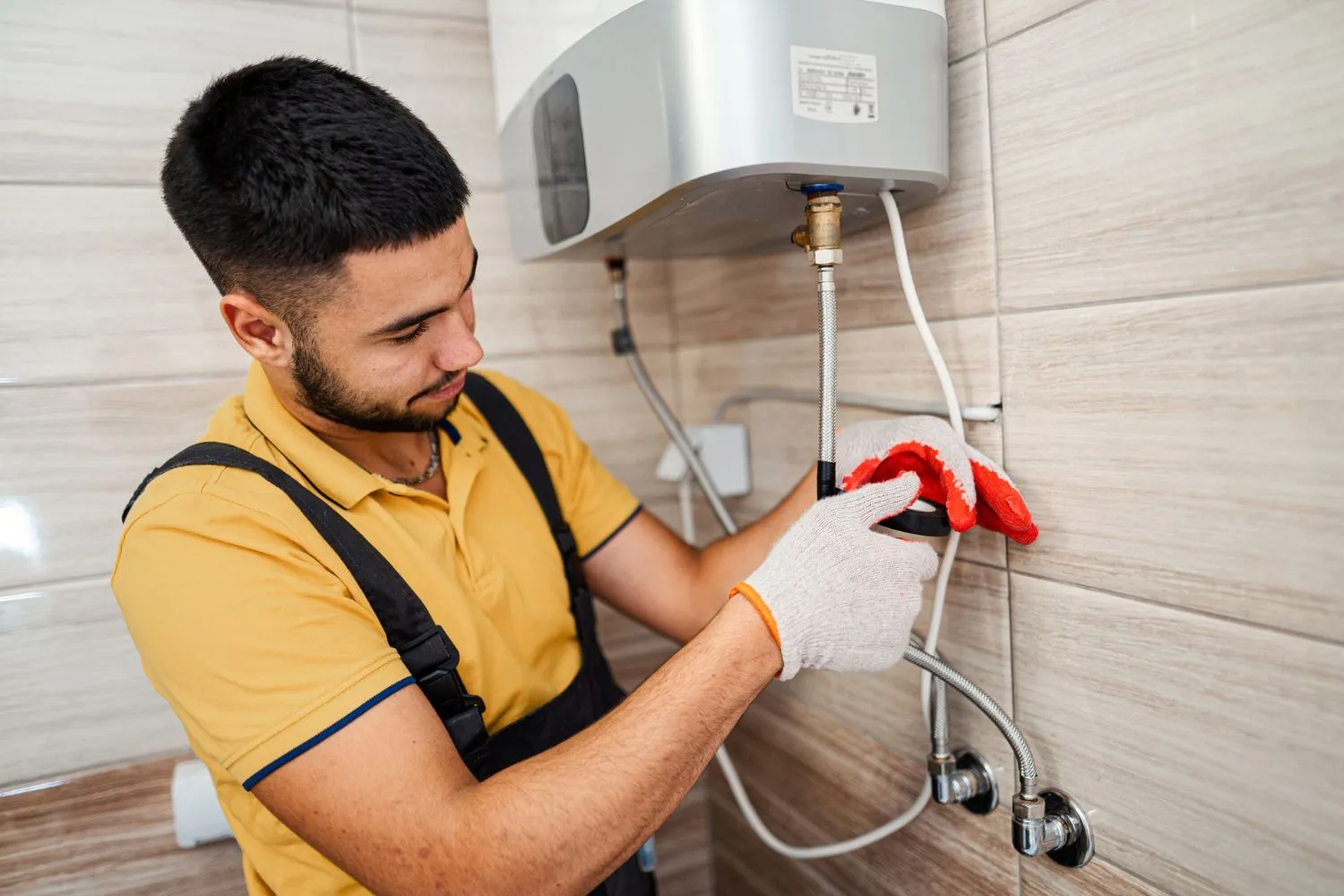Troubleshooting Regular Heater Malfunctions
Troubleshooting Regular Heater Malfunctions
Blog Article
On this page in the next paragraph you will discover a bunch of helpful points involving Common Problems with Your Home Water Heater.

Imagine beginning your day without your regular hot shower. That already sets a poor tone for the remainder of your day.
Every residence needs a dependable hot water heater, yet just a few know exactly how to take care of one. One easy means to keep your water heater in leading form is to look for mistakes on a regular basis and also fix them as soon as they show up.
Remember to switch off your water heater prior to sniffing about for faults. These are the hot water heater faults you are most likely to come across.
Water too warm or also chilly
Every hot water heater has a thermostat that identifies just how hot the water gets. If the water entering into your house is as well warm despite setting a practical optimum temperature, your thermostat might be malfunctioning.
On the other hand, also cold water might be due to a failed thermostat, a damaged circuit, or incorrect gas flow. For instance, if you make use of a gas hot water heater with a busted pilot burner, you would certainly get cold water, even if the thermostat is in ideal condition. For electric heaters, a blown fuse might be the offender.
Insufficient warm water
Hot water heater can be found in several sizes, depending upon your hot water demands. If you run out of hot water before everybody has actually had a bathroom, your water heater is also tiny for your family size. You need to think about installing a larger hot water heater storage tank or choosing a tankless water heater, which uses up much less area and is more long lasting.
Strange noises
There go to least five type of sounds you can hear from a hot water heater, yet the most typical analysis is that it's time for the hot water heater to retire.
First of all, you ought to recognize with the regular appears a hot water heater makes. An electric heater may sound different from a gas-powered one.
Popping or banging sounds typically imply there is a slab of sediment in your tanks, and it's time to cleanse it out. On the other hand, whistling or hissing audios might just be your valves letting some pressure off.
Water leaks
Leaks might originate from pipelines, water links, shutoffs, or in the worst-case circumstance, the container itself. With time, water will certainly wear away the container, and also find its way out. If this happens, you require to replace your water heater immediately.
Nonetheless, prior to your adjustment your entire tank, make sure that all pipes remain in area and that each shutoff works perfectly. If you still need help recognizing a leakage, call your plumber.
Rust-colored water
Rust-colored water suggests one of your hot water heater elements is worn away. Maybe the anode pole, or the container itself. Your plumber will certainly be able to identify which it is.
Warm water
Regardless of just how high you set the thermostat, you won't obtain any kind of hot water out of a heating unit well past its prime. A water heater's performance might lower with time.
You will certainly likewise get lukewarm water if your pipelines have a cross connection. This indicates that when you turn on a faucet, warm water from the heater flows in together with routine, cold water. A cross connection is simple to area. If your hot water faucets still follow shutting the water heater valves, you have a cross connection.
Discoloured Water
Rust is a significant cause of dirty or discoloured water. Deterioration within the water tank or a falling short anode pole might cause this discolouration. The anode pole safeguards the tank from rusting on the within as well as must be checked annual. Without a pole or an effectively functioning anode rod, the warm water promptly corrodes inside the container. Contact a professional water heater professional to figure out if changing the anode pole will repair the problem; if not, replace your hot water heater.
Conclusion
Preferably, your hot water heater can last one decade before you require a change. Nonetheless, after the 10-year mark, you might experience any of these mistakes more regularly. At this point, you ought to include a new water heater to your spending plan.
How To Troubleshoot 3 Common Water Heater Problems in Twin Cities
The Water Heater Is Leaking
A leaky cold water inlet valve A loose pipe fitting A leaky temperature and pressure relief valve A corroded anode rod A cracked tank Turn Off Your Water Heater:
Shut off your gas water heater by turning the gas valve on the unit to the “OFF” position. Shut off your electric water by switching its power off at your electrical panel. Look for a two-pole breaker labeled “water heater” and turn it to the “OFF” position. Move the ball valve connected to the water heater to be perpendicular to the piping at a 90° angle. Look for the Leak:
Depending on whether the water is coming from the tank's top or bottom, you’ll want to look for the leak in different locations.
If the leak comes from the top of the tank, carefully look for water escaping from the cold water inlet valve or loose pipe fittings. Rusted hot and cold water valves can have loose connections with the tank, with water leaking out of them.
https://mspplumbingheatingair.com/blog/how-to-troubleshoot-3-common-water-heater-problems
Do you enjoy reading about Common Problems with Your Home Water Heater? Place a comment directly below. We would be delighted to listen to your suggestions about this write up. Hoping that you come back again soon. Sharing is good. You just don't know, you might be doing someone a favor. Many thanks for your time. Visit again soon.
Superior emergency plumbing? We're here. Report this page